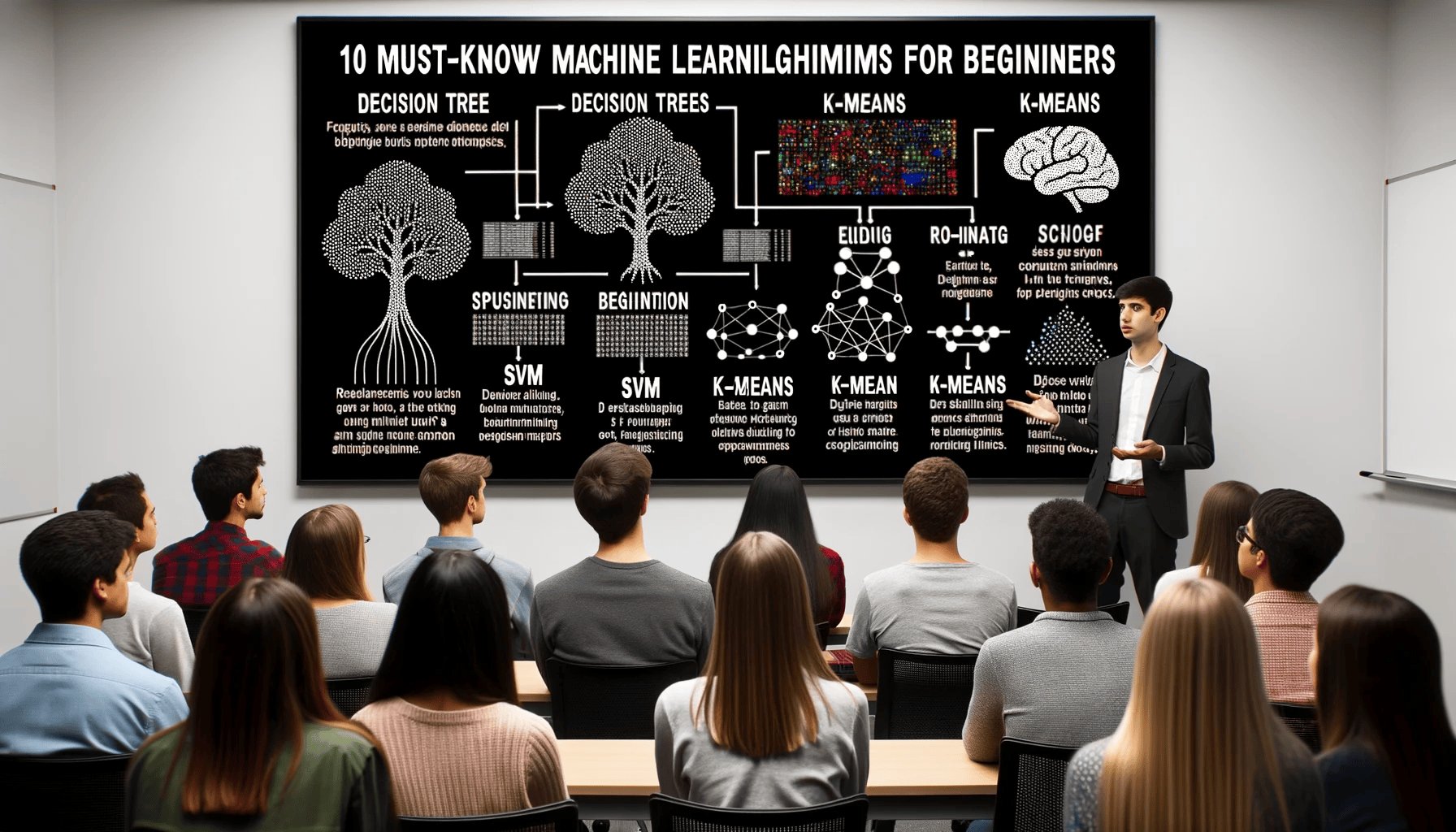Embarking on a journey into the realm of machine learning (ML) can be exhilarating as well as overwhelming due to the vast scope and depth of the field. One of the first steps in mastering ML is getting acquainted with the core algorithms that provide a foundation to build upon. This article unfolds the ten must-know machine learning algorithms for beginners, shedding light on their practical applications and how they serve as the building blocks in the ML landscape.
1. Linear Regression
Linear Regression is a statistical method used in machine learning to predict a continuous target variable based on one or more input features. It’s simple, interpretable, and a good starting point for regression tasks1.
2. Logistic Regression
Logistic Regression, contrary to its name, is used for binary classification tasks. It estimates the probability that a given instance belongs to a particular category.
3. Decision Trees
Decision trees split the data into subsets based on the value of input features. This hierarchical approach is easy to visualize and interpret.
4. Support Vector Machines (SVM)
SVM is a robust algorithm used for both regression and classification tasks. It works well even with non-linearly separable data.
5. Naive Bayes
Naive Bayes algorithm is based on Bayes’ Theorem and is particularly effective in text classification tasks like spam filtering.
6. K-Nearest Neighbors (KNN)
KNN is a simple, instance-based learning algorithm used to classify new data points based on the similarity with existing data.
7. Random Forest
Random Forest is an ensemble method that creates a ‘forest’ of decision trees and aggregates their predictions for improved accuracy.
8. AdaBoost
AdaBoost is another ensemble method that focuses on boosting the performance of weak learners to build a stronger overall model.
9. Gradient Boosting
Gradient Boosting is a sequential ensemble method that corrects the errors of previous models for enhanced predictions.
10. Neural Networks
Neural Networks are the backbone of deep learning, capable of learning complex patterns and making predictions.
Each of these algorithms holds its unique place in the machine learning ecosystem, catering to specific types of problems and data. As you delve deeper into these algorithms, you’ll find a treasure trove of knowledge waiting to be unlocked, paving your way to becoming adept at machine learning.
